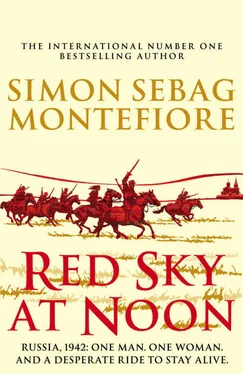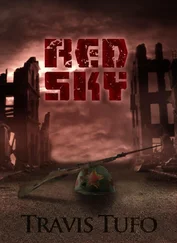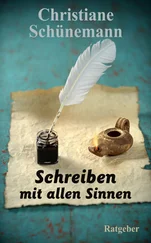Koshka rode in. He was, Benya knew, one of those tedious men who thought it was his duty to tell others the truth about their lives such as whether their wife was secretly unfaithful or how they should become better at their jobs. ‘Just saying,’ he usually concluded.
The men gathered round him.
‘I was thrown from my horse and then lost her for a while…’ Koshka said. No one looked particularly convinced but they let the twitchy Uzbek sit with them and share the food they had gathered in the Italian village.
‘What do we do now?’ Garanzha said after they had eaten.
Captain Zhurko cleared his throat. ‘I was waiting for others but… it seems no more of us are coming in,’ he said in his plain way. ‘We need to make a plan.’
‘You’re our officer,’ said Benya.
‘If you wish me to command you, I shall,’ replied Zhurko, stroking his strong chin. ‘But I think our circumstances are a little unusual.’
Panka spoke up: ‘I propose we form ourselves into a circle in the old Cossack tradition,’ he said, ‘and that we elect Zhurko as our ataman , our chieftain. What say you, brothers?’
Everyone agreed.
‘What are our options?’ asked Spider Garanzha.
‘Well, I think we have five options,’ said Captain Zhurko. ‘One, fight our way back to our lines. Travel at night. Find a quiet sector, preferably Italian or even better Romanian…’
‘What? After we’ve offered them Koshka as a present?’ joked Mametka in his high voice. The men chuckled.
‘They’d prefer you, Bette Davis,’ replied Koshka.
‘Not funny,’ said Mametka. Benya remembered what had happened to Fats Strizkaz and held his breath.
‘Enough,’ said Zhurko. ‘Cut it out. Mametka, you asked for that. Koshka, you have my protection.’
‘Carry on,’ said Smiley.
‘Then we’d report back to our forces at the last strongholds in the bend of the Don or ford it somewhere and rejoin the Stalingrad Front. Find our units.’
‘What unit? We’re Smertniki – the Dead Ones – and we’re damned whatever we do,’ said Koshka.
‘We all know what would happen,’ Smiley agreed, gravely.
‘We can’t go back,’ said Benya. ‘We’d receive the Eight Grammes before we’d even given our names.’
‘True,’ Zhurko said. ‘As a Russian patriot and a good Communist, death, for me, is better than defection and I propose surrender is out of the question. That’s our second option.’
‘We’re stranded behind enemy lines. Our army has collapsed. Come on, fellows. Be honest. Is anything out of the question?’ said Koshka. ‘Just saying.’
‘Surrender is impossible for me,’ replied Benya. ‘You’ve seen the things the Germans are doing here.’
‘You say that because you’re a Jew, right?’ said Koshka. ‘We can’t listen to you.’
‘Permission to shut him up?’ said Smiley, those hornlets rising on his forehead.
‘Wait,’ said Benya. ‘I am a Jew, it’s true: I can’t surrender. But I’ve heard too the Germans simply starve their Russian prisoners to death.’
‘Some Russians surrendered to the soft-hearted Italians,’ Koshka pointed out. ‘Or we could defect to Mandryka and join the Schuma. They get good food. And girls, lots of girls.’
‘If you wanted to join them, why didn’t you?’ asked Little Mametka softly.
‘I don’t want to. If I did want to, I wouldn’t be here,’ protested Koshka.
Sergeant Panka stood up. ‘We’ve heard enough now, and I can tell you this, boys: I am not going anywhere ! Captain, what are our orders?’
‘I think there is a right thing to do,’ opined Zhurko earnestly, looking at them through his steel-rimmed spectacles and lighting up a cigarette. ‘But we could also hide out here and hope to be liberated.’
‘But that might never happen,’ said Koshka. ‘Right now, we’ve got to face the possibility that we’re going to lose the war. Just saying.’
‘No, Koshka, we will win the war,’ answered Zhurko. ‘I am certain. I was an economist at Gosplan. That was my job in Moscow. We did the Five-Year Plans.’
‘A great success!’ said Benya.
‘Is that Odessan humour?’ asked Zhurko.
‘If you’re that clever, captain,’ asked Smiley, ‘how did you end up here?’
Zhurko grinned, cleaning his spectacles. ‘I predicted a recession, but a recession is impossible in our Socialist Paradise. Anyway we, on our own, will out-produce the Germans this year. With the Americans, we are unbeatable. If Hitler didn’t win in the first year, he can’t win the war.’
‘So he’s gonna lose?’ piped up Mametka.
‘Exactly. All the laws of science confirm it but it will take years and we don’t have the luxury of time. Next option, we find our Soviet partisans, who are fighting the Germans behind their lines, and join them.’
‘But where are they?’ asked Koshka.
‘Honestly? We don’t know and the steppe has been so swiftly overrun, it is possible there aren’t any partisans here.’
‘So far, these are not tempting options,’ Koshka observed.
‘Who are you to judge anything?’ Garanzha glared at the little Uzbek. ‘Where did you suddenly arrive from, Koshka?’
‘I got lost, I told you. I looked for you. Finally I found you.’
‘Got lost, found us? Hmm. It stinks,’ said Spider Garanzha. ‘Just saying!’
‘Enough, both of you,’ said Panka, suddenly drawing his sword. Panka never fooled around. He was straight as a lance. The two Shtrafniki stopped arguing.
‘The last option is this,’ said Zhurko, even-toned and sensible. ‘We were told to eliminate the traitor Mandryka. If we kill him we are redeemed. If we are wounded, we are redeemed. We know where Mandryka is. That’s our mission.’
‘You’re suggesting a few horsemen ride into his stronghold?’ said Koshka. ‘We tried that earlier and it was madness. Think of all the men we lost.’
‘We’re on a suicide mission after all.’ Benya smiled as he spoke.
‘More Odessan irony?’ said Zhurko. ‘We’re still alive and I plan to stay alive. We don’t attack the village of Shepilovka, which is crawling with Mandryka’s men and a unit of Germans. We know though that he rides out each day with German colleagues to organize anti-partisan aktions. Let us ambush him when he ventures out of his stronghold. If we die in the attempt, so be it.’
‘I agree,’ said Panka. ‘We have our horses; we are still Cossacks. I am not going anywhere ! You’ll see: it’s always sunny on the steppe.’ He got up, slid his sword back into its scabbard and started to build a fire.
‘That was a cheerful talk.’ Prishchepa chuckled. ‘Who’s gonna sing me my lullaby? I know. I’ll sing my own.’ As Prishchepa sang, Garanzha, half-lit by the orange flames, danced slowly around the fire swinging his meaty limbs in giant arcs, rising and falling, mouth wide open, eyes closed, yet finding a sort of grim, grinding rhythm all of his own.
Prishchepa sang in an angelic tenor:
‘A Cossack rode to a distant land;
Riding his horse over the steppe…’
And then Panka replied in a baritone: ‘His home village he left forever.’
And they all supplied the chorus:
‘He’ll never come back again;
He’ll never come back again.’
When Benya lay with his head on his saddlebag and observed Panka’s long foxy nose and little eyes as he sang, he was amazed to see that tears ran down his face. They had chosen the most dangerous mission. How many of them would be alive to sing their songs when the sun went down tomorrow?
 Читать дальше
Читать дальше













